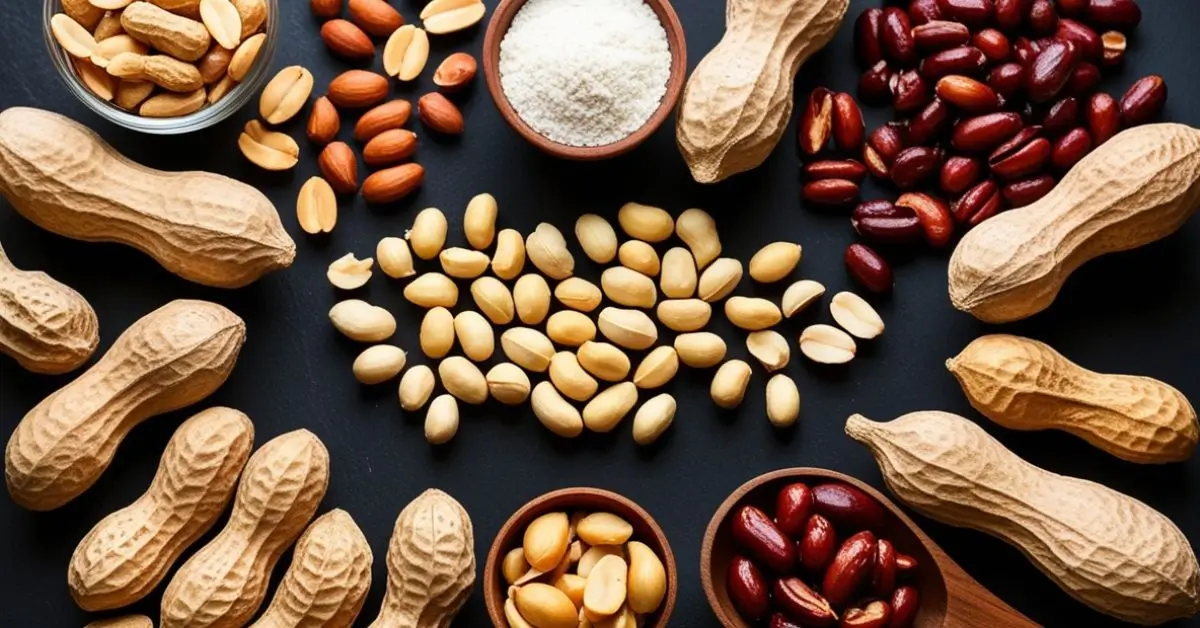Peanuts are a versatile and nutritious addition to daily life, offering a wealth of culinary applications and health benefits. Incorporating peanuts into your meals can enhance flavor, provide essential nutrients, and support overall well-being.
Nutritional Profile of Peanuts
Peanuts are rich in protein, healthy fats, fiber, vitamins, and minerals. A quarter-cup serving of raw peanuts contains approximately 207 calories, 9 grams of protein, 18 grams of fat, 6 grams of carbohydrates, 3 grams of fiber, and 1 gram of sugar. The fats in peanuts are predominantly monounsaturated and polyunsaturated fats, known for their heart-healthy properties. Additionally, peanuts are an excellent source of B vitamins, vitamin E, magnesium, and phosphorus.
Health Benefits of Peanuts
Heart Health: Regular consumption of peanuts has been linked to reduced cholesterol levels and a lower risk of heart disease. The monounsaturated fats in peanuts help maintain healthy cholesterol levels, while their antioxidant content combats oxidative stress.
Weight Management: Despite their calorie density, peanuts can aid in weight management. The combination of protein and fiber promotes satiety, helping to control appetite and reduce overall calorie intake.
Blood Sugar Regulation: Peanuts have a low glycemic index, meaning they cause a gradual rise in blood sugar levels. This property makes them a suitable snack for individuals managing diabetes or aiming to maintain stable energy levels.
Incorporating Peanuts into Daily Meals
Breakfast
- Peanut Butter Smoothie: Blend natural peanut butter with a banana, Greek yogurt, and milk for a protein-packed smoothie that provides sustained energy throughout the morning.
- Oatmeal Topping: Enhance your oatmeal by adding a spoonful of peanut butter or a handful of chopped peanuts. This addition not only boosts flavor but also increases the meal’s protein and healthy fat content.
Lunch
- Salads: Sprinkle roasted peanuts over salads to add a satisfying crunch and nutty flavor. They pair exceptionally well with leafy greens, carrots, and Asian-inspired dressings.
- Peanut Butter and Banana Sandwich: Spread peanut butter on whole-grain bread and layer with banana slices for a classic, nutrient-dense sandwich.
Dinner
- Stir-Fries: Incorporate peanuts into stir-fried dishes for added texture and flavor. They complement a variety of vegetables and proteins, enhancing the overall taste profile.
- Peanut Sauce: Create a simple peanut sauce by mixing peanut butter with soy sauce, honey, and lime juice. Drizzle this sauce over grilled chicken, tofu, or roasted vegetables to elevate your meal.
Snacks
- Trail Mix: Combine peanuts with your favorite nuts, seeds, and dried fruits to create a healthy, portable snack. This mix offers a balance of protein, healthy fats, and carbohydrates, making it ideal for on-the-go nourishment.
- Energy Balls: Mix peanut butter with oats, honey, and add-ins like chocolate chips or dried fruits to create no-bake energy balls. These make for a convenient, nutrient-dense snack option.
Comparison of Peanut Products
To help you choose the best peanut-based products for your needs, here’s a comparison of their nutritional profiles and common uses:
| Product | Protein (per 1 oz) | Fat (per 1 oz) | Common Uses |
|---|---|---|---|
| Roasted Peanuts | 7g | 14g | Snacks, salads, baking |
| Peanut Butter | 8g | 16g | Spreads, smoothies, baking |
| Peanut Flour | 12g | 4g | Baking, thickening agents, gluten-free recipes |
| Peanut Oil | 0g | 14g | Cooking, frying, dressings |
Health Considerations
While peanuts offer numerous health benefits, it’s important to be mindful of potential allergies. Peanut allergies can be severe, so individuals with known sensitivities should avoid them. Additionally, opt for unsalted and unflavored peanuts to minimize added sodium and sugars. Moderation is key, as peanuts are calorie-dense; a typical serving size is about one ounce, or a small handful.
Conclusion
Incorporating peanuts into your daily life can enhance your meals with flavor and nutrition. From breakfast to dinner and snacks in between, peanuts offer versatility and health benefits that make them a valuable addition to a balanced diet.
For a visual guide on incorporating peanuts into your meals, check out this informative video:











